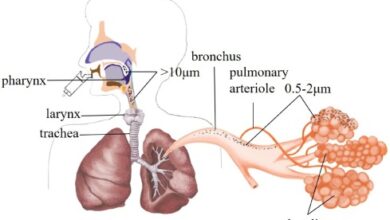Boosting Your Wellness: Natural Health Practices for a Balanced Life

Key Takeaways:
- Natural health practices can help improve overall well-being and reduce stress.
- Integrating traditional therapies with modern lifestyle habits offers a holistic approach to health.
- Regular body maintenance through acupuncture and herbal remedies can enhance daily life.
Table of Contents:
- The Importance of Natural Health Practices
- Common Natural Health Techniques
- Benefits of Acupuncture
- Herbal Remedies and Their Uses
- Integration of Traditional and Modern Therapies
- Case Studies and Real-Life Examples
- Misconceptions and Safety Concerns
- Conclusion
The Importance of Natural Health Practices
Natural health practices have gained significant attention in recent years within the health community. These practices, rooted in ancient traditions, focus on enhancing personal well-being and fostering a balanced lifestyle. They aim to provide holistic solutions for modern health challenges, avoiding the side effects often associated with conventional medicine. Research shows that integrating such practices into daily life can improve physical and mental health.
Moreover, natural health practices advocate for a comprehensive wellness approach involving physical men, mental, and emotional well-being. Aligning body, mind, and spirit is central to achieving a balanced life, and natural therapies can help bridge the gap between these different aspects of one’s self. When modern healthcare feels overly mechanical, these practices bring back a human touch, fostering an environment where individuals feel more in control of their health outcomes.
Common Natural Health Techniques
- Acupuncture
- Herbal Remedies
- Aromatherapy
- Meditation and Mindfulness
- Yoga and Tai Chi
Every method provides distinct advantages and can be customized to suit specific requirements. Companies providing liquid manufacturing solutions for herbal remedies are crucial in making these natural treatments accessible to the public. Yoga can enhance physical strength and flexibility, improving posture and reducing muscle tension. Aromatherapy involves utilizing essential oils from plants to enhance mood and relaxation, while Tai Chi incorporates gentle flowing movements and deep breathing to improve physical and mental equilibrium. These practices are efficient and relatively easy to incorporate into daily routines, making them accessible to a broad audience.
Benefits of Acupuncture
Acupuncture, an essential component of traditional Chinese medicine, requires placing thin needles into distinct points on the body. This method is thought to enhance the flow of energy and support the process of healing. Research has shown that acupuncture is successful in addressing a range of issues such as long-lasting pain, headaches, and stress. It works by triggering the body’s natural painkillers and improving blood circulation. As a non-invasive treatment, acupuncture offers a viable alternative to pain management without the risks associated with long-term medication use. Patients often report a feeling of general wellness and relaxation after treatment, further compounding the benefits of this ancient practice. For example, mindfulness meditation reduces stress and improves mental clarity, encouraging living in the present moment.
Herbal Remedies and Their Uses
Herbal remedies have been utilized for centuries to address various health issues. These remedies often come in teas, tinctures, or supplements derived from naturally occurring plants and herbs. For instance, ginger is widely used to combat nausea and alleviate morning or motion sickness symptoms. Meanwhile, echinacea is famous for boosting the immune system, particularly during cold and flu season. Before beginning any herbal regimen, it is crucial to seek advice from a healthcare provider to make sure it is safe and effective. Having knowledge of the proper amounts, advantages, and possible adverse reactions can assist in making educated choices about integrating these organic supplements into one’s daily routine. Quality control and sourcing from reputable suppliers are crucial factors to avoid contamination or adulteration.
Read more: The Role of Machine Learning in Predictive Analytics for Digital Wallets
Integration of Traditional and Modern Therapies
Combining traditional therapies, like acupuncture and herbal remedies, with modern lifestyle practices can create a comprehensive approach to health. This integration supports the body’s natural healing processes while promoting overall wellness. For example, someone suffering from chronic stress might pair acupuncture treatments with a regular yoga practice and mindfulness meditation, creating a well-rounded plan to manage their symptoms effectively. Moreover, modern dietary practices and technological aids in monitoring health can further complement traditional methods, paving the way for a more balanced lifestyle. When combined with traditional health practices, nutritional supplements can provide the essential nutrients required for optimal health, supporting the body’s natural functions.
Case Studies and Real-Life Examples
Several individuals have found relief and enhanced their quality of life through natural health practices. One notable case involves a middle-aged woman suffering from chronic migraines who turned to acupuncture and herbal supplements after conventional treatments proved ineffective. Over several months, her migraine frequency and severity decreased markedly, allowing her to resume her daily activities with minimal disruption. Another example is the use of yoga and meditation among professionals to increase productivity and reduce work-related stress, which has become a popular trend in workplaces globally. There are countless stories of individuals who have improved their mental health through meditation and mindfulness, often reporting significant gains in emotional regulation and stress reduction.
Misconceptions and Safety Concerns
Despite their benefits, natural health practices often face misconceptions and skepticism. Some believe these methods lack scientific backing or view them as secondary to conventional medicine. However, many natural therapies are supported by extensive research and have been proven to be safe when administered correctly. It is essential to seek guidance from qualified practitioners and to use these therapies as complementary to primary medical treatments rather than replacements. It’s also critical to be aware of the origins and quality of herbal products to avoid counterfeit and potentially harmful substances. Misunderstandings about the efficacy and safety of these practices can be addressed through education and transparency, helping to build a more informed and accepting public perspective.
Conclusion
Natural health practices offer robust, holistic solutions to modern health challenges, promoting well-being and balance. Individuals can achieve a harmonious, healthy life by integrating traditional techniques like acupuncture and herbal remedies with contemporary lifestyle habits. It’s vital to approach these therapies with an open mind and seek proper guidance to ensure their safe and effective use. Incorporating natural health practices supports personal wellness and contributes to a more sustainable and balanced approach to health care. As more people turn to these methods for comprehensive health solutions, the future looks bright for a more integrated and holistic healthcare system.




